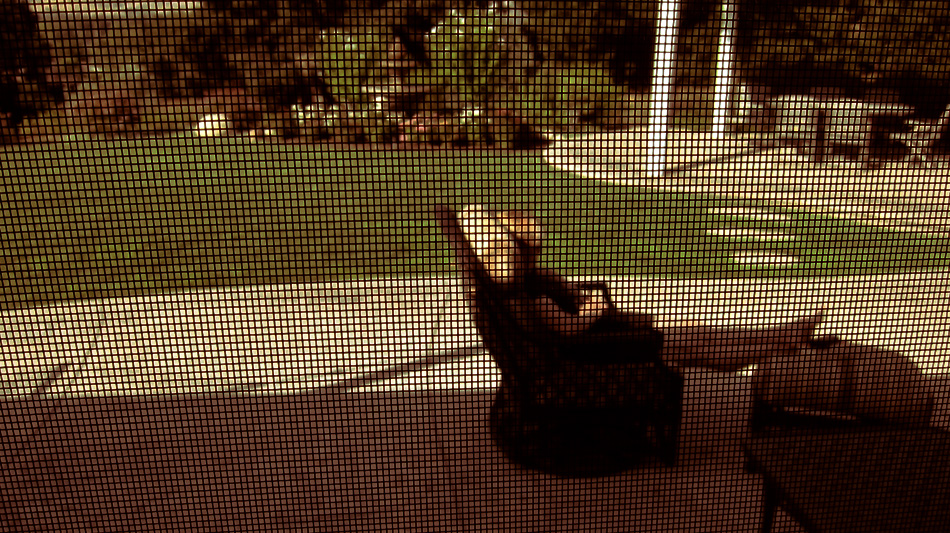THE GREAT DISCONNECT

Simi Valley, California, 2010
IT HAD BEEN PLANNED AND TALKED ABOUT ONLINE FOR MONTHS. IT WAS TO BE CALLED THE GREAT DISCONNECT. ACROSS THE GLOBE PEOPLE ABANDONED THEIR DIGITAL PERSONAS AND WENT TO OUTDOOR VENUES TO RE-LEARN HOW TO INTERACT WITH ONE ANOTHER OFFLINE.
“The Internet is causing mass homogenization of human identity, making us all look the same
We use the same tools and social networks, fitting into the same templates, designed by companies to maximize page views and profits (with some notable exceptions like Craigslist).”
PROJECTORS AIMED AT STADIUM SIZED BALLOONS THAT FLOATED IN THE SKY. ON THEM A MOVIE DEPICTED SOCIAL INTERACTION AS THEY WERE BEFORE THE INTERNET. A DISEMBODIED VOICE ECHOED THROUGH CITIES AND EXPLAINED HOW PEOPLE USED TO SHARE WITH ONE ANOTHER.
“Most online experiences are made, like fast food, to be cheap, easy, and addictive: appealing to our hunger for connection but rarely serving up nourishment. Shrink-wrapped junk food experiences are handed to us for free by social media companies, and we swallow them up eagerly, like kids given buckets of candy with ads on all the wrappers.
These experiences are sensitive neither to individual humans nor to the human collective, but only to page views and growth (in a corporate, not personal sense).”
AT FIRST PEOPLE DIDN’T KNOW WHAT TO DO IN THE PHYSICAL PRESENCE OF EACH OTHER. ONLINE THERE WAS A RATIONAL TO CONVERSATION- A SCRIPTED COMMUNICATION THAT MOST FELT AT EASE PRACTICING. BUT KEEPING ANOTHER’S GAZE , AND SAYING THINGS WITH MEANING, THAT WAS DIFFICULT.
“It is fitting that these companies call their customers “users”.
As we fill in the same boxes, answer the same questions, and express ourselves in the same generic ways, we might think this convergence of identity is a good thing, leading to some kind of global unity or mass empathy. But true empathy comes not from forcing people all to be the same, but from helping people to appreciate their differences.
Our online tools do a great job at breadth (hundreds of friends, thousands of tweets), but a bad job at depth. We live increasingly superficial lives, reducing our relationships to caricatures and our personalities to billboards, as we speed along at 1,000 miles an hour.”
THEY SOON REALIZED THAT THEY HAD FORGOTTEN THAT THEY WERE, IN FACT, QUITE DIFFERENT. THIS WAS COMPLEX TO COMPREHEND, FOR ONLINE- THEY ALL SEEMED THE SAME.
“We trade self-reflection for busyness, gorging ourselves on it and drowning in it, without recognizing the violence of that busyness, which we perpetrate against ourselves and at our peril.
For the last 100 years-from letters, to phones, to faxes, to emails, to chats, to texts, to tweets-communication has been getting shorter and faster, but we are approaching a terminal velocity.”
AND THE REALIZATIONS ABOUT EACH OTHER AND THEMSELVES WENT ON FOR A GOOD LONG TIME. PEOPLE NEWLY REACQUAINTED WITH CONCEPTS LIKE CANDOR, TACTILITY, AND LAUGHTER EXPLORED THE DEPTHS OF ONE ANOTHER. FOR A BRIEF MOMENT THEY BECAME VULNERABLE.
“I doubt there is a shorter means of communication than the tweet, unless we start to make monosyllabic grunts at each other or communicate silently, brain to brain. Brief gestures of communication can be beautiful, but can also be shallow. So what will happen next? Will we stop at the tweet, or will we bounce back in the other direction, suddenly craving more depth? I’d bet on the latter.
But even if we start to crave more depth, we cannot run away to a more primitive time.
The momentum of technological growth is too strong for us to prevent it from defining our future. Like it or not, our future world will largely be digital.”
MOST WERE STUNNED TO FIND THEY HAD THE CAPACITY TO SHARE A DEEP AND MEANINGFUL CONNECTION. FOR MONTHS THEREAFTER MILLIONS TRIED, AND FAILED, TO DESCRIBE THE EXPERIENCE IN 140 CHARACTERS OR LESS.
“Instead of fleeing to the forest, we must find the humanity in the machine and learn to love it. If we decide the humanity does not yet exist there in the ways we expect, then we must create it.” -Jonathan Harris
Originally published at iAmKosta.org. You can comment here or there.